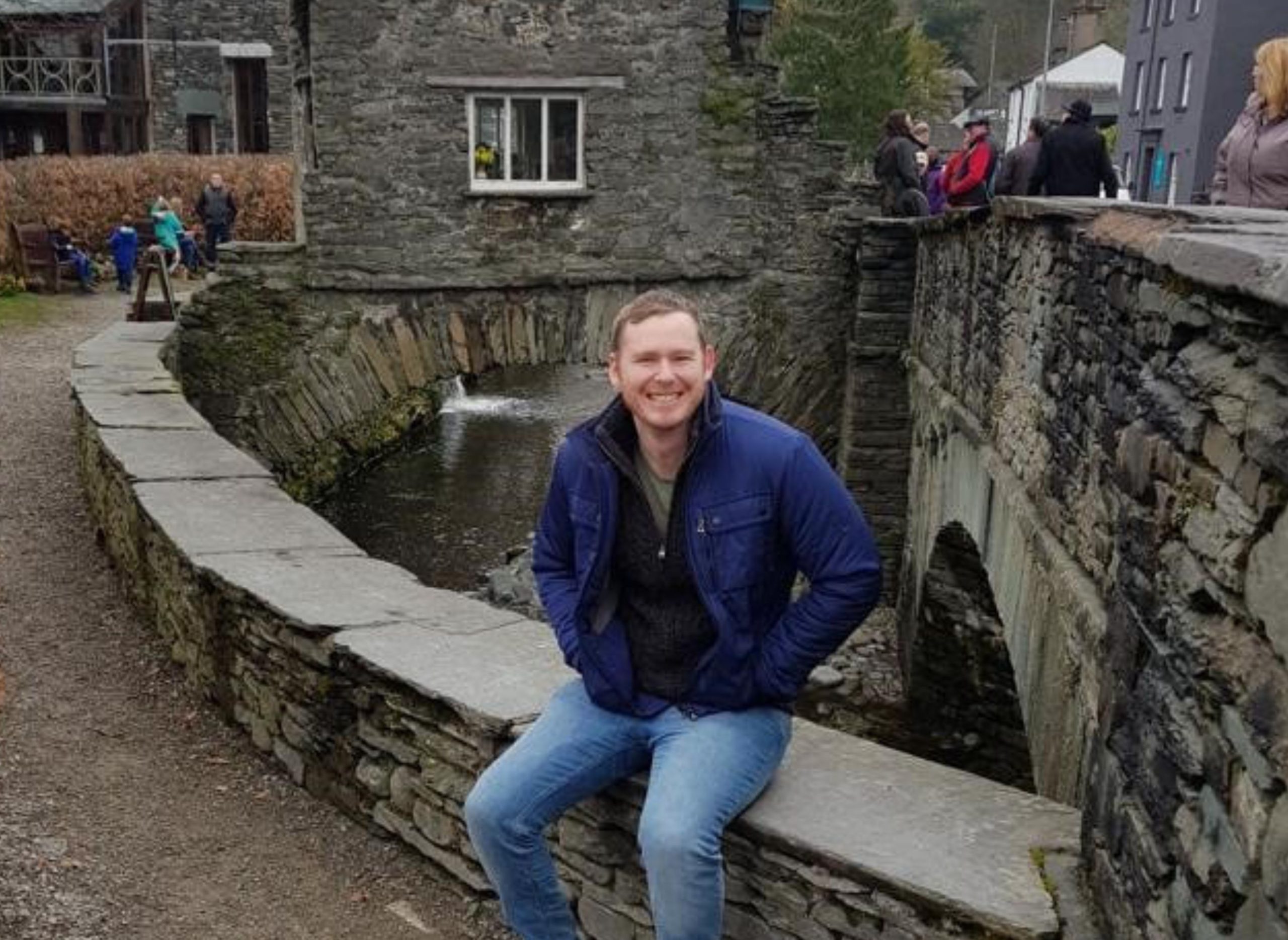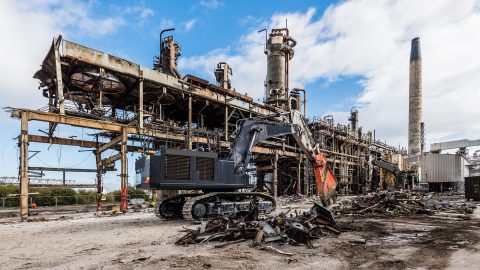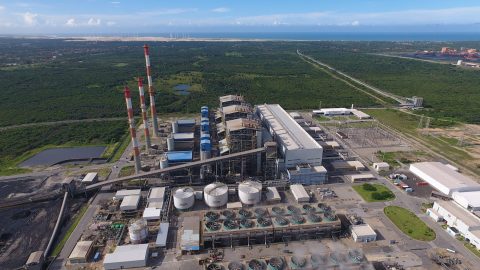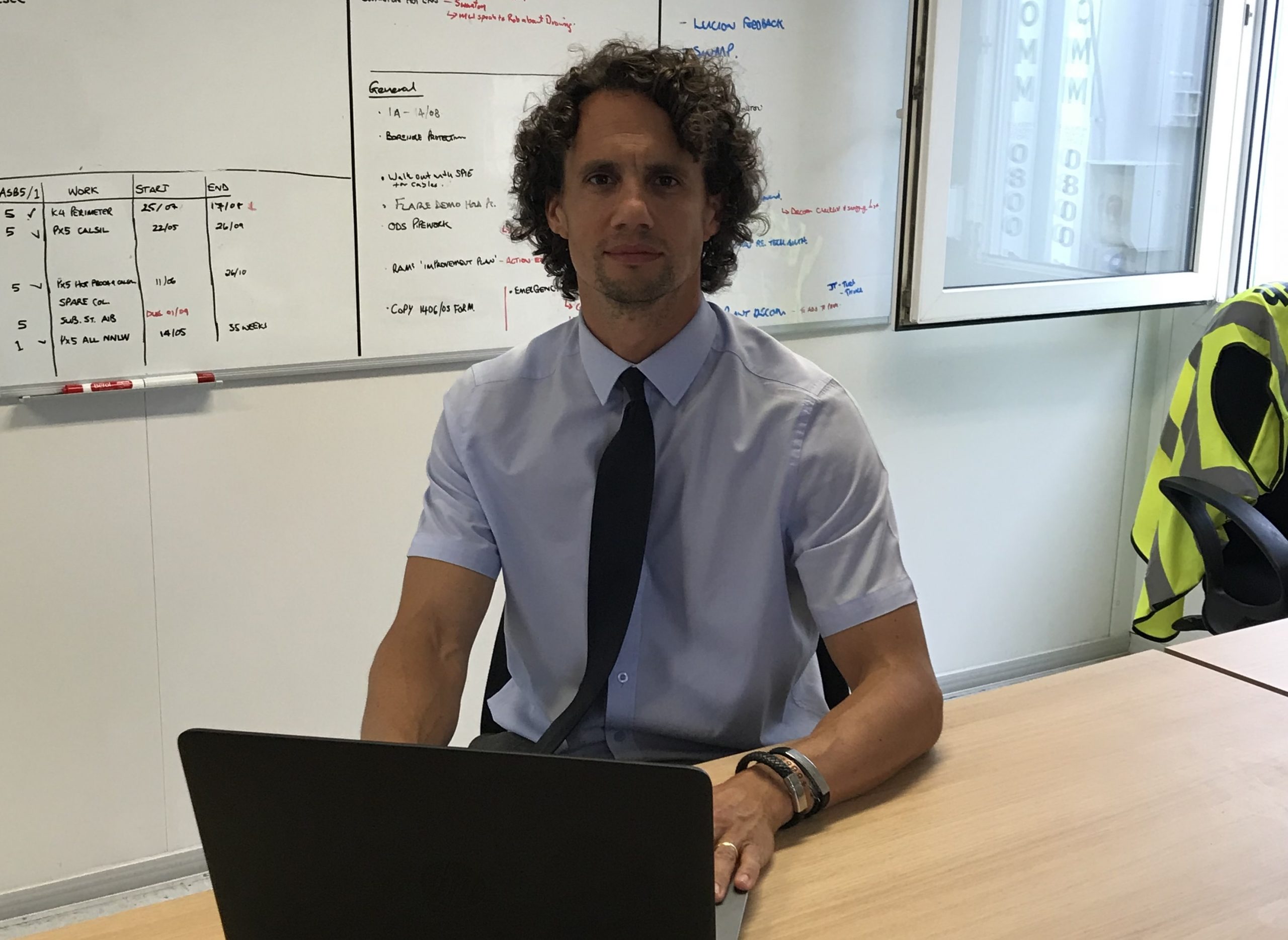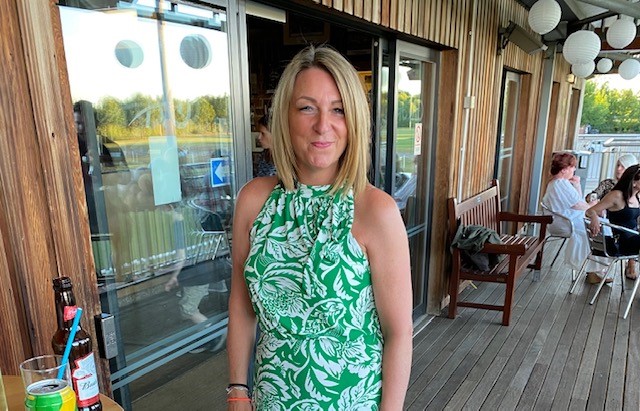Name and role: Matthew Waller, Operations Director
How long have you been with RVA Group?
15 years in May 2023.
Describe your career journey before that?
I started out on a graduate scheme in refractory manufacturing before moving into glass manufacturing and then oil and gas and biodiesel construction projects, before joining RVA.
What did you want to be, when you were younger?
I had always been interested in motorsport, so had wanted a career in Formula 1 – demolition engineering isn’t quite Monte Carlo, but it has taken me to Singapore!
And what do you think is the key skill you need to be a successful Operations Director?
Listening! We have an extremely talented team, and it is my role to support them to deliver the highest of standards when it comes to decommissioning, decontamination, dismantling and demolition projects in the UK and overseas.
Whether it’s being on hand to give some advice on a particular decommissioning solution, provide experience on a demolition methodology, or offer support on a new safety initiative, I am usually found working hard in the background – and that’s OK with me! But I wouldn’t be able to do any of this without properly listening to what the challenges or opportunities are.
What’s your biggest RVA achievement to date?
This year we’re celebrating 10 years of working with the chemical manufacturing giant SABIC. I am very proud to have been part of the team that has safely delivered 19 projects – over 895,000 hours – with an exemplary safety record in high-hazard, high-consequence environments.
And the most memorable thing you’ve learnt during your career?
During the early part of my career when studying Project Management, my mentor taught me that the most important thing was ‘definition, definition, definition’, which then ties into something which I’ve learnt which is equally critical – ‘communication is key’.
Making sure that everyone is talking the same language is vital to project success.
Describe your dream project
- Early RVA Group involvement
Being there at the start ensures that we can add the most value and don’t have to spend time ‘course-correcting’ to get the project pointing in the right direction.
I never used to understand the relationship between senior level attitudes and behaviours vs. what is seen in the workplace, but now I see its impact all of the time. Where a project has senior level commitment to doing the right thing – with safety being paramount – then the project will be on a sure footing.
Knowing clearly what the aims of a project are and what success looks like for all involved, provides clarity surrounding decision making, at every step.
- Clear scope definition (and a robust management of change procedure)
Back to my project management study days of definition, definition, definition, you’d be amazed by how many projects don’t have a clear articulation of what they are actually trying to achieve.
This means listening to each other, respecting others’ knowledge, accepting that there will be differing drivers and opinions at times, but knowing that it doesn’t mean there has to be conflict because of that.
With those five points covered, any project would be a dream to work on.
RVA Group is celebrating 30 years in business, with a truly global reputation for decommissioning excellence. Why do you think the company has earned such a stand-out position in industry?
We focus on safe decommissioning project execution and delighting our clients – it’s that simple. If we achieve this, then the rest normally follows suit – you only have to look at our reference list to see that this fundamental formula works!
Of all the sectors RVA operates in, which is the most exciting right now?
Nuclear decommissioning, power-station demolition and the removal of offshore structures tend to get all the big headlines, but taking a ‘bog-standard’ chemical plant from a hazardous undocumented status to a point where our clients’ visions are safely realised, is just as exciting as anything else for me.
That’s probably because there’s no such thing as ‘bog standard’ in truth. Every asset, from a pilot plant to one producing millions-of-tonnes of output per annum, presents its own unique challenges to decommission, dismantle and demolish it safely.
What I would say is generally most exciting right now in our industry, is the opportunity that we have to move safe execution of decommissioning, dismantling and demolition projects on to the next level – with the development of new execution techniques and the implementation of robust project management which has safety ‘built-in’ at the core. I believe that we can make another step change in preventing harm to people and the environment, which is the very reason we exist.
What’s the biggest piece of advice you could give to an organisation preparing for a decommissioning project?
Speak to professional decommissioning engineers and demolition engineers as soon as you know that you have a project to undertake. It is never too early. Involving the right expertise, at the right time, will improve safety and reduce costs – sometimes exponentially.
What makes you tick outside of work?
- My children – at 5 and 7, they keep me busy when I’m not thinking about demolition engineering.
- Whenever I do get a little time to myself, you’ll either find me reading or running. I’m fascinated by the psychology of people and how that affects us all both in and out of work. My current book is Inner Engineering by Sadhguru. My favourite ever book is difficult, but I particularly love the work of Matthew Syed, Malcolm Gladwell and Simon Sinek.
And if I’m not reading, I’ll be running (slowly).
If you could be given a plane ticket for anywhere, where would you choose?
My most favourite places in the world are remote and filled with wildlife, so I’d be happy with anywhere that ticks those boxes.
Which one word would you hope colleagues would use to describe you?
Caring – I hope my colleagues know that I care about more than just the job.










